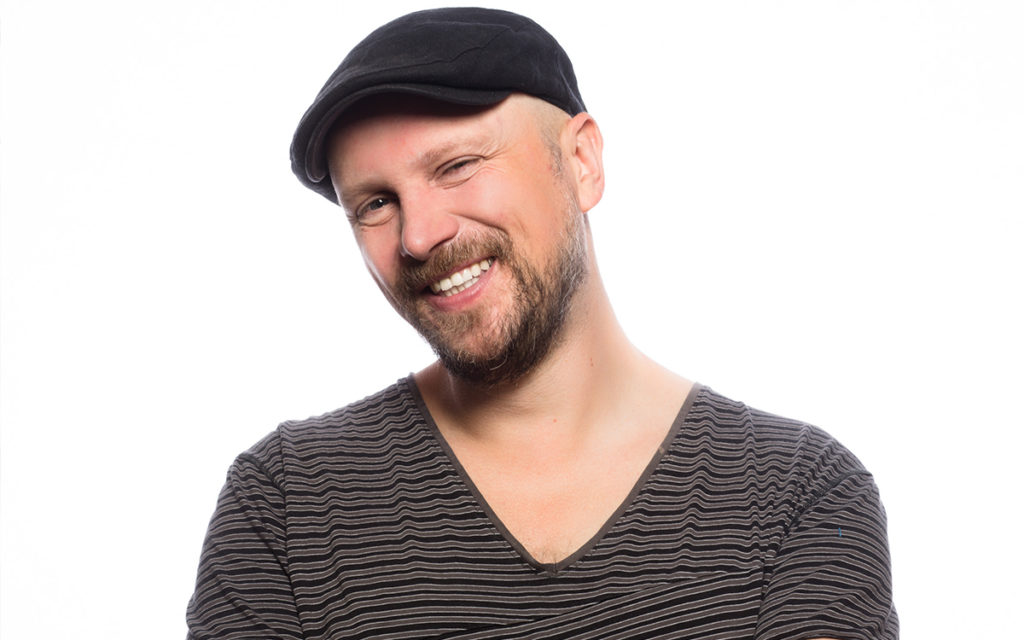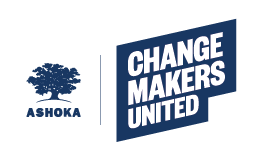News:
“If we were a start-up, we would be showered with money“.

For Thorsten Kiefer and WASH United, the first thing that came with the pandemic was doubt: Can we do it? But he and his team didn’t let that paralyze them. In this interview, he tells us how he experienced 2020 and what his plans are for the coming year.
Thorsten, what were your expectations going into 2020?
My hope for WASH United itself was to get into calmer waters. To have a year where you work with less time pressure and push the envelope less often. We were actually on a good track there in January – because otherwise the first half of the year is always very stressful because May is Menstrual Hygiene Day, our biggest global campaign. When the pandemic hit, we were faced with the task of taking a global campaign that now has more than 630 partner organizations and had more than 720 events in 76 countries last year and either going completely digital in a matter of weeks – or not. We decided on the former, of course. It was a really, really tough act to follow.
Everyone was faced with this sudden digitalization. How did you go about it?
As an organization, we had been afraid of digital until then: Can we do it? Do we want it? Is this really our thing? In March, we suddenly had to ask ourselves: If there are no events around World Menstruation Day – how can we still manage to create a community feeling? How can we succeed in having exchanges take place? In the past, we had always dreamed of organizing a central global event on May 28. But an “analogue” event with thousands was completely unaffordable. And to organize such an event digitally we just didn’t dare before Covid-19.
I hear that you dared to organize such an international event …
Yes! We hired a professional production team and were on air live with Studio MH Day for a total of almost seven hours on May 28. Very early in the morning was the session for Asia-Pacific, Africa-Europe at noon, North and Latin America followed in the evening. There were countless exciting conversations with a wide variety of MH Day partners from around the world, from small NGOs from Samoa to TV stars from Kenya to Procter & Gamble, World Bank and Bill & Melinda Gates Foundation. Bringing together such diverse partners would never have been possible by analogy. It was a fantastic experience, Covid-19 forced our luck. Studio MH Day will definitely be back in 2021 – with or without a pandemic.
What other challenges did Covid-19 present you with?
It wasn’t easy to get the issue of menstruation on the media and political radar. We were particularly concerned with how we could ensure that the topic did not fall off the radar again during the pandemic. We had already received the signal from the latter in March: Topics that are not related to Covid are not currently on the ministers’ agenda. And the media also reported almost exclusively about Covid. So, we created a new hashtag, #PeriodsInPandemics, and worked with a variety of partner organizations to create what I think is a great infographic on the topic. Together with the World Association of Girl Guides and Girl Scouts, we also did a survey with nearly 4,000 girls in more than 160 countries on the question: how do you experience periods during the pandemic? That way, we could always link to Covid beyond the normal stories – and the topic didn’t fall off the table in crucial posts.
Were you successful?
And how! World Menstruation Day 2020 was a mega smashing success. We reached more than 411 million people worldwide with the campaign, 30 percent more than the year before – and that had already been a record year. In total, there were over 4100 media stories on the topic, which was over 80% more than the previous year. The infographic was our most downloaded content. Media and MH Day partner organizations used it to no end.
The concern that issues away from Covid-19 are no longer being heard, or are being heard less, affects other areas as well. What tips do you have for keeping issues present?
Let’s take the example of menstruation. We have tried to communicate: These are the biggest problems at the moment, and this is what lies behind them. And: Where is the solution – for now and afterwards? I would be careful about linking a particular problem exclusively to the crisis. Because if the pandemic were to be over at some point, the issue would also be gone.
You are part of Changemakers United, a transnational program of Ashoka that emerged in April and aims to provide targeted support to social entrepreneurs working on Covid-19. How did you get involved?
In light of the pandemic and the unique challenges, we, along with Welthungerhilfe, developed educational materials for children and youth in 25 languages. That’s how we came up with the program. It was super to see how quickly Ashoka is able to bring people together and start an exchange. I found that very valuable.
How do you experience the Ashoka community?
I work with many in the community, and I am friends with some. What I noticed this year in particular: How many of us have had to fight. For the survival of their organizations, for their own existence, for the impact of the projects. The pandemic has only exacerbated existing social and societal challenges. After all, 2020 clearly shows that social innovation is more compelling and urgent than ever, the contributions of social entrepreneurs like us are more important than ever. When I then see how difficult it is made for many of us because the funding instruments in Germany feel like they are from the stone age, I could scream. It’s time to unfuck social impact funding in Germany!
What exactly do you mean by that?
All government funding in Germany is characterized by the desire not to do anything wrong, i.e., not to fund anything where tax money could be wasted. And this attitude is transferred to foundations and other donors. We need to create a new consensus, a completely new attitude toward funding: away from maximum control and toward genuine cooperation aimed at long-term impact maximization. Away from distrust of civil society and toward trust in and appreciation for the social commitment of our own citizens. Moving away from short-term, small-scale, over-regulated project funding to long-term, flexible, institutional funding. Countries like the Netherlands and Sweden have also achieved this – and are living it.
What do you think will happen if nothing changes in Germany?
We – those who are pushing these issues today and those who come after us – will always walk around with one or two bullets in our knees. It simply doesn’t help society when social entrepreneur rock stars like us spend a lot of our time and energy on fundraising. The German state, foundations and also private funders must finally make it easier for us to focus on our ideas and have maximum impact. Let’s be honest: The external conditions this year were catastrophic for us, i.e., WASH United. And what did we make of it? If we were a commercial start-up, we would be showered with money. But for us as a social impact company, the hamster wheel just keeps going.

